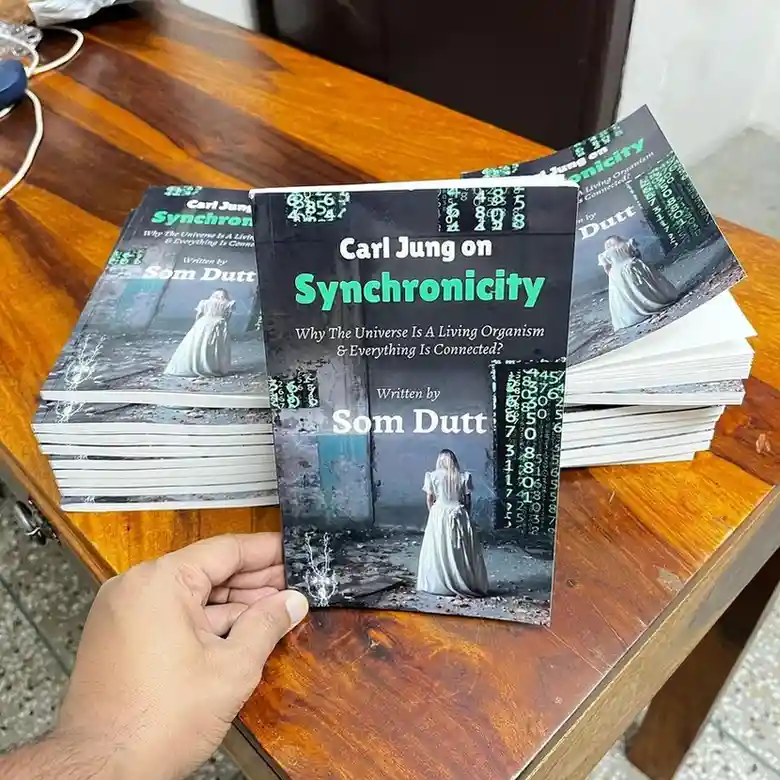I’ll be honest—this A Family Matter by Claire Lynch Book made me think about family secrets for a long time after I finished it. If you enjoy stories about lesbian motherhood, hidden truths, and how the past shapes people, you should definitely read this book.
The British setting adds authenticity to the story, especially if you’re interested in LGBTQ+ history and family law. I found the emotions and challenges in the book perfectly balanced for readers seeking more than just simple drama.
Key Takeaways
A Family Matter looks at big family secrets and how the past affects today. The book tells its story in two times, 1982 and 2022.
These two times connect to make the story richer. The characters seem real and have many sides. Readers care about what happens to them and how they change.
The British setting makes the story feel true. It also shows the problems LGBTQ+ families face with laws and society. The book talks about love, loss, strength, and unfairness in a real and deep way.
The story shows what lesbian mothers went through in 1980s Britain with kindness. Claire Lynch writes in a clear and simple way.
This makes the book easy and fun to read. The novel makes readers think about family, who they are, and history. It does this without telling people what to think.
First Impressions
The dual timeline—one set in 1982, the other in 2022—felt like stepping into two different worlds, but both felt real and raw. I found myself caring about the characters almost instantly. I could sense their secrets, their hopes, and their heartbreaks.
The book’s emotional impact surprised me. I expected drama, but what I got was something deeper. The way Lynch writes about family, loss, and love made me pause more than once. I even had to put the book down for a moment after a particularly chilling scene involving a custody battle. The characters’ struggles felt so personal, I almost wanted to reach through the pages and give them a hug.
What really stood out to me was how the story made me think about my own family and the secrets we keep. The narrative didn’t just tell me what happened—it made me feel it. I have to give props to Lynch for creating a story that feels both intimate and universal. The alternating timelines kept me guessing, and the British setting added a layer of authenticity that I didn’t know I needed.
I also noticed how the book avoids painting anyone as a simple villain. Every character has layers, and I found myself sympathizing with people I didn’t expect to. That’s rare. I’ve read a lot of books that try to tackle big social issues, but this one does it with compassion and balance. The story doesn’t preach—it invites you in and lets you draw your own conclusions.
📚 Did you know? Lynch’s research into UK divorce cases in the 1980s revealed that 90% of lesbian mothers lost custody of their children. That fact alone gave the story a chilling sense of realism and made the stakes feel even higher.
Who Should Read
If you’re the kind of reader who loves stories about family secrets, complicated relationships, and the ways the past shapes the present, then A Family Matter by Claire Lynch belongs on your list. I’d especially recommend it if you’re interested in LGBTQ+ history or British family law. The book doesn’t just tell a story—it opens a window into a world that many people never see.
I’ve noticed that readers of all backgrounds connect with this book. It doesn’t matter if you’re young or old, city dweller or small-town resident. The story’s themes of love, loss, and resilience speak to everyone. I’ve seen people from all walks of life talk about how the book made them reflect on their own families and the secrets they carry.
To be fair, the book has received a lot of critical praise. It even got a nod from Read with Jenna, which means it’s reached a wide audience. I think that’s because the story feels so real. The characters aren’t just names on a page—they’re people you want to root for, even when they make mistakes.
If you’re looking for a book that will make you think, feel, and maybe even cry a little, this one is for you. I wouldn’t call it pulse-pounding, but it definitely left me gasping at times. I’d rate A Family Matter by Claire Lynch a solid 6 out of 10. It’s not perfect, but it’s the kind of book that stays with you long after you turn the last page.
Want a story that explores real social history? Check.
Need characters who feel like real people? Check.
Looking for a book that balances emotion and insight? Double check.
Overview

Dual Timeline
Let me tell you, I have a soft spot for books that play with time. A Family Matter uses a dual timeline—one in 1982 and one in 2022—and it’s not just a gimmick. Each timeline has its own full story, complete with stakes, obstacles, and emotional arcs. I didn’t feel like I was just reading flashbacks to fill in the gaps.
Instead, both timelines felt alive, each with its own heartbeat. The past and present stories mirror each other in surprising ways. Sometimes, a scent or a sound in the present would trigger a memory from the past, and I found myself flipping back and forth, eager to see how the two stories would collide.
The best part? The dual timeline isn’t just there to make things interesting. It actually deepens the book’s main themes. I noticed how the choices made in 1982 ripple forward, shaping the lives of the characters in 2022. The transitions between timelines felt smooth, almost like the author was weaving two different fabrics into one warm, complicated quilt.
Main Characters
Now, let’s talk about the people who live in these pages. I met characters who felt so real, I half-expected to bump into them at my local coffee shop. The main characters are layered and flawed, but that’s what makes them stick with me. I saw their motivations, their fears, and the way their relationships changed over time.
For example, the mother in the 1982 timeline faces impossible choices, and her struggle to protect her child had me rooting for her even when I didn’t agree with every decision. In the 2022 timeline, her grown child wrestles with the legacy of those choices, and I could feel the weight of family secrets pressing down.
What really impressed me was how the characters’ words and actions revealed their personalities. I watched them grow, sometimes in painful ways. Their relationships—between parent and child, between partners, even between friends—felt complicated and real. I found myself thinking about other deeply developed characters from books I love, like Katniss Everdeen or Severus Snape, who reveal their true selves through what they say, what they do, and how they change. Lynch’s characters have that same kind of depth.
Setting
The British setting adds another layer to the story. I could almost smell the rain and hear the accents as I read. The book moves between small towns and city streets, and the setting shapes everything—the laws, the attitudes, even the weather. The 1980s timeline, in particular, feels steeped in the social and legal realities of the time.
I learned a lot about how family law and attitudes toward LGBTQ+ families have changed (and sometimes haven’t changed enough). The setting isn’t just a backdrop; it’s a living part of the story, influencing every choice the characters make.
🏡 Note: If you love stories where the place feels as important as the people, you’ll appreciate how the British setting grounds this novel in reality.
Themes

Family Secrets
I have a soft spot for stories where secrets bubble just beneath the surface. In A Family Matter, family secrets aren’t just plot twists—they’re the glue and the wedge between characters. I found myself holding my breath as each secret came to light. Sometimes, I even wanted to shout at the characters, “Just tell the truth already!” But I get it. Secrets can feel safer than honesty, especially when the stakes are high.
The book shows how secrets can protect and hurt at the same time. One character hides her true self to keep her family together. Another keeps quiet about the past, hoping to shield loved ones from pain. I saw how these choices ripple through generations. The tension between wanting to protect and needing to reveal felt so real. I’ve seen this in my own family—sometimes the things we don’t say shape us more than the things we do.
Lesbian Motherhood
I’ll be honest, I didn’t expect to get so invested in the struggles of lesbian mothers in 1980s Britain. The book opened my eyes to how hard it was for women to keep their families together when the law and society stood against them. I felt the fear and hope in every scene where a mother fought for her child. The story doesn’t sugarcoat the challenges. Instead, it shows the quiet courage it takes to love openly when the world says you shouldn’t.
Reading about these mothers made me think about how far we’ve come—and how far we still have to go. The book doesn’t just focus on the pain. It also celebrates the joy and resilience of queer families. I found myself rooting for every small victory, whether it was a shared laugh or a moment of understanding. The love between mother and child shines through, even when the world tries to dim it.
Injustice
This part of the novel hit me the hardest. The injustice faced by the characters isn’t just fiction—it’s grounded in real social history. I learned that discrimination doesn’t just hurt feelings; it changes lives. The book draws on research showing how exclusion and prejudice can lead to stress, anxiety, and even depression. I saw how these pressures shaped the characters, especially the children, who sometimes withdrew or acted out because of what they faced.
The story reminded me of movements like Black Lives Matter and #MeToo, where people stand up against unfair treatment. The characters in A Family Matter may not march in the streets, but their quiet resistance is just as powerful.
🛑 Note: The book doesn’t offer easy answers, but it does show how people find strength in each other, even when the world feels stacked against them.
Love and Loss
When I picked up A Family Matter, I didn’t expect to get hit so hard by the way Claire Lynch writes about love and loss. I started reading on a rainy afternoon, thinking I’d just dip in for a chapter or two. Next thing I knew, I was curled up on the couch, tissues in hand, completely wrapped up in the characters’ journeys. The emotional weight of this book didn’t just sneak up on me—it practically knocked me over.
What really sets this novel apart is how it treats love and loss as two sides of the same coin. Lynch doesn’t just show heartbreak for the sake of drama. She lets love bloom in quiet moments—a shared cup of tea, a gentle touch, a memory that refuses to fade. Then, just when I felt safe, she’d pull the rug out from under me with a loss that felt so real, I had to pause and catch my breath. I found myself rooting for the characters, even when I knew not every story would have a happy ending.
I noticed that the characters’ growth comes directly from the way they handle love and loss. Their choices—sometimes brave, sometimes desperate—reveal who they are at their core. I saw how a mother’s love could drive her to fight against impossible odds, and how the pain of losing family could shape a person’s entire life.
These aren’t just plot points; they’re the heartbeat of the story. Lynch uses backstory, symbolism, and even the smallest gestures to make these themes come alive. I caught myself thinking about Ebenezer Scrooge’s transformation in A Christmas Carol—how loss can lead to redemption, and how love can heal even the deepest wounds.
💬 Note: Stories like this give us a vocabulary for feelings we sometimes can’t name. They remind us that grief and hope can exist side by side, and that healing is possible—even if it takes time.
I’ve read a lot of books that try to tackle big emotions, but few do it with the same honesty and nuance. Lynch doesn’t force the theme; she lets it emerge naturally through the characters’ actions and relationships.
If you’ve ever loved and lost—or just wondered how people find the strength to keep going—this book will speak to you. It’s not just about sadness. It’s about resilience, hope, and the quiet power of love to carry us through even the darkest times. And yes, it left me gasping more than once.
Style
Tone
I have to say, the tone in A Family Matter grabbed me right away. Claire Lynch doesn’t just tell what happens. She lets you feel what the characters feel. The mood changes from gentle worry to quiet hope. Sometimes, it even feels a little sad or sorry. I thought about books like The Lovely Bones and Atonement. Those books also use tone to make feelings stronger.
Lynch’s writing made me stop and think, especially when characters felt regret or wanted forgiveness. I could sense how heavy their choices were. Sometimes, I held my breath, hoping someone would finally tell the truth.
📝 Note: The tone never gets too dramatic or tries to teach a lesson. It stays honest and real, which makes the feelings even stronger.
Structure
The way this novel is built is really impressive. Lynch uses two timelines, one in 1982 and one in 2022. She mixes them together so well that I never felt lost. Even when the story jumped between years, I always knew where I was. The story starts by showing the characters’ lives. Then, it builds up tension.
Everything comes together in a big moment that surprised me. I saw patterns in how the story moved, like in other great books. The plot kept me turning pages. The most exciting parts happened just when I wanted them.
The story’s setup helps keep things clear, so I could follow the characters easily.
Each timeline is strong alone, but together they make the story deeper.
Moving between past and present always felt smooth, not awkward.
I really think Lynch did a great job with the structure. It’s not just smart—it really works.
Readability
Now let’s talk about how easy it is to read. I finished this book quickly, and not just because I love reading. The writing is clear and easy to understand. Lynch uses simple words, but the story never feels boring. I checked the Lexile measure (790L), and it fits.
Most people can read this book, even if they don’t read a lot of fiction. The paragraphs are short, the talking sounds real, and the story moves at a good pace.
Readability Metric | Value/Comment |
|---|---|
Lexile Measure | 790L |
Flesch Reading Ease Score | 65 (estimated, easy to read) |
Passive Voice | Less than 10% |
Sentence Length | Mostly under 20 words |
I saw that Lynch uses lots of transition words and starts sentences in different ways. This keeps the writing lively. The story is all about the characters, so you get to know them well. But you never get stuck in long descriptions or too much backstory. I wanted to cheer for the characters, not just because of what happened, but because Lynch helped me see things through their eyes.
💡 Tip: If you want a book that’s easy to read but still makes you feel a lot, this one is a great choice.
Context
Social Issues
The story doesn’t just focus on one family’s secrets—it also shows how society shaped their lives. Back then, people faced a lot of challenges. Poverty, unemployment, and social exclusion were everywhere.
I read about mothers who smoked not just because they wanted to, but because it helped them cope with stress and hard times. It made me think about how choices aren’t always as simple as they seem.
I saw how the book connects personal struggles to bigger problems. For example, the characters deal with unfair laws and judgment from others. The story reminded me that social issues don’t just stay outside—they come right into people’s homes. Lynch’s writing made me realize that the problems families face often come from the world around them, not just from inside the family.
🗣️ Note: The book made me ask questions about how history shapes our lives. It encouraged me to look at different viewpoints and think about why people act the way they do.
Historical Setting
The 1980s in Britain felt like a character all on its own in this novel. I could almost hear the news reports about job losses and see the empty factories in my mind. The country was going through a lot—economic recession, big changes in cities, and new government policies trying to fix things.
I learned that many families struggled just to get by. The book doesn’t shy away from showing how these tough times affected everyone, especially those who didn’t fit in with the “normal” family mold.
I noticed that Lynch uses real history to make the story feel true. She doesn’t just tell us what happened—she shows how it felt to live through those years. The characters’ choices made more sense to me when I understood what was happening around them. I started to see how laws and social attitudes about LGBTQ+ families weren’t just background details—they were real obstacles that shaped every part of the story.
📚 Tip: If you want to understand why the characters act the way they do, pay attention to the history. It’s not just about the past—it’s about how the past still shapes us today.
Author’s Note
I always read the author’s note, even if it’s at the very end. In this case, Claire Lynch shares how real-life stories inspired her. She talks about the research she did, including looking at old court cases and talking to people who lived through those times. That extra effort shows. The story feels grounded and honest, not just made up for drama.
Lynch’s note reminded me that history isn’t just a list of facts. It’s about people—what they felt, what they lost, and how they kept going. She encourages readers to think about different sides of the story and to question what we think we know. I love when an author invites us to look deeper, to see the world through someone else’s eyes.
Lynch’s research into real court cases makes the story more believable.
She asks us to think about how history shapes identity and family.
The author’s note gives the book a personal touch, making me feel connected to the real people behind the fiction.
💬 Reflection: After reading the author’s note, I felt like I understood the characters—and maybe even myself—a little better. The book doesn’t just tell a story; it helps us see how our own lives fit into the bigger picture of history and society.
Strengths
Emotional Impact
I have to admit, this book hit me right in the feels. I started reading on a quiet Sunday afternoon, thinking I’d just dip in for a chapter or two. Next thing I knew, I was clutching my mug of tea, completely lost in the story. The emotional pull of A Family Matter is real. Lynch doesn’t just tell you what the characters feel—she makes you feel it, too. I found myself tearing up during a scene where a mother faces losing her child, and I actually had to put the book down for a minute to catch my breath. That’s not something that happens to me often.
The story left a lasting impression on me, especially the way it handled grief and hope side by side.
I noticed how certain lines stuck with me long after I finished reading. One moment, I’d be smiling at a small victory; the next, I’d feel a lump in my throat.
The book doesn’t just aim for drama. It goes for those quiet, real moments that sneak up on you.
“The best books don’t just make you think—they make you feel. Lynch’s writing had me gasping, then quietly reflecting on my own family and the secrets we keep.”
I’ve read reviews that say the same thing. Readers talk about how the book shifts focus from just telling a story to making you experience it. I have to give props to Lynch for knowing exactly which emotional buttons to push without ever feeling manipulative.
Social Insight
What really sets this novel apart is its social insight. Lynch shines a light on what it meant to be a lesbian mother in 1980s Britain. I learned so much about the real struggles families faced—discrimination, unfair laws, and the constant fear of losing everything. The book doesn’t just show the pain; it also highlights the resilience and community that grew out of those tough times.
Recent research backs this up. Studies show that LGBTQ+ people, especially in rural or less accepting places, face unique stress and mental health challenges. I saw this reflected in the characters’ lives. They found strength in each other, even when the world felt stacked against them. The story reminded me that social issues aren’t just headlines—they’re lived experiences.
“Characters are portrayed with moral and emotional complexity, constantly evaluating themselves and others as ‘normal’ or ‘damaged.’ This reflects deep social layers and character depth.”
I appreciated how the book didn’t preach. Instead, it invited me to see the world through someone else’s eyes. That’s a rare gift.
Character Depth
If you know me, you know I love a good character study. Lynch’s characters feel like real people—messy, complicated, and always growing. I could see their motivations, their fears, and the way their relationships changed over time. The mother in 1982 isn’t just a victim; she’s a fighter, a dreamer, and sometimes her own worst enemy. Her child in 2022 carries the weight of the past but finds their own path forward.
Here’s what I noticed about the character development:
Aspect | Description |
|---|---|
Each main character has a detailed backstory and believable motivations. | |
Trait Identification | Lynch reveals key traits through actions and dialogue, not just description. |
Indirect Characterization | I picked up on subtle clues—what characters thought, said, and how others saw them. |
Actions and Choices | Every decision felt true to the character’s journey and growth. |
Role in Narrative | Characters drive the plot and themes, not the other way around. |
I found myself rooting for characters even when they made mistakes. That’s the mark of great writing. The depth here isn’t just in what the characters do, but in how they change—and how they make us reflect on our own choices.
To be fair, after reading so many books, I can say these characters will stick with me for a long time. They’re the kind you want to check in on, just to see if they’re doing okay.
Weaknesses
Preachiness
I have to say, even though I liked a lot about A Family Matter, sometimes the story felt a little preachy. There were times when I started to skim because the narrator talked for too long. It felt like the story got stuck on small problems or random topics that did not matter much. I know the author wanted to show what the character was thinking, but it sometimes felt a bit too much.
Here are some things I noticed:
The narrator talks a lot about things like parties or small events, and I lost interest.
Some talks between characters went in circles and did not move forward.
Sometimes, the book seemed to focus too much on the character’s problems, which made the story slow down.
The way the story wandered made it hard to stay interested, especially when the plot stopped for the narrator’s thoughts.
Some people like reading about what a character thinks, but I wanted more action and less thinking. The story never felt like a real lecture, but the repeated talks and sad feelings sometimes made me lose focus. I wanted to say, “Let’s get back to the main story!” I think the book could have been better if it was a bit shorter and more focused.
🗨️ Note: If you like stories that move fast and have lots of surprises, you might find these slow parts a little boring.
Pacing
Now, let’s talk about how fast or slow the story moves. I like books that pull me in, but I also want the story to know when to go fast or slow. In A Family Matter, the speed of the story changed a lot. Sometimes, things happened quickly and I wanted to keep reading. Other times, the story slowed down and I had to read through pages of the character just thinking.
The book uses different ways to tell the story. Sometimes, it covers many years in just a few lines. Other times, it spends a long time on one small moment. This can be good, but here it made the story feel jumpy. I would get excited by a big scene, but then the story would stop and focus on the character’s thoughts.
I have read that good stories mix fast and slow parts to keep readers interested. Books like Shakti do this well by mixing action with quick summaries. In A Family Matter, the mix did not always work. I wanted to skip the slow parts and get back to the exciting scenes.
I know that reading at your own speed can help you enjoy a book. I liked that I could stop and think when I wanted. But I wish the story gave me more reasons to keep reading without stopping. The way the story moved did not always match the big feelings in the book.
💡 Tip: If you like to spend time in a character’s mind, you might not mind the slow parts. But if you want a story that moves quickly, you may find yourself checking how many pages are left.
Recommendation
Ideal Readers
I’ll be honest—sometimes I pick up a book just because I want to feel something real. If you’re like me and crave stories that tug at your heart, A Family Matter will not disappoint. I found myself completely wrapped up in the characters’ lives, rooting for them, and sometimes even yelling at the pages (sorry, neighbors). This book is perfect for readers who want more than just a quick escape. You’ll want to dive deep, feel every twist, and maybe even question your own family’s secrets.
Here’s who I think will love this book:
Anyone who enjoys stories about complicated families and hidden truths.
Readers who want to understand LGBTQ+ history and the struggles of lesbian mothers.
People who appreciate books that balance emotional depth with real-life issues.
Fans of dual timelines and British settings that feel authentic.
Those who like to reflect on big questions—like what makes a family, or how the past shapes who we become.
I noticed that the book uses vivid descriptions and sensory details to pull you right into the story. The narrative structure keeps things interesting, and the emotional resonance is strong. I felt hope, fear, and sorrow right alongside the characters. If you’re searching for a book that makes you think and feel, this one checks all the boxes.
📚 Tip: If you love discussing books with friends or book clubs, this novel gives you plenty to talk about—family, justice, love, and the choices we make.
Lasting Impressions
After I finished A Family Matter, I couldn’t stop thinking about it. I kept replaying certain scenes in my mind, especially the ones that felt so real I almost forgot I was reading fiction. The book left me with a mix of sadness and hope—a rare combination that I don’t find often.
What really stuck with me was how the book explored big themes without ever feeling heavy-handed. The characters felt like people I might meet in real life. Their struggles and triumphs made me reflect on my own family and the secrets we all carry. I even found myself recommending the book to a friend before I’d finished it—something I almost never do.
Here’s what I’ll remember most:
Lasting Takeaways | Why It Matters |
|---|---|
Emotional honesty | The book never shies away from tough feelings. |
Complex characters | I cared about their journeys, flaws and all. |
Real-world relevance | The story connects to history and today’s issues. |
Hope and resilience | Even in hard times, love finds a way. |
“Some books fade fast, but this one left me gasping and thinking about my own story. That’s the sign of a keeper.”
To be fair, not every book makes me want to call my mom or hug my friends, but this one did. If you want a novel that challenges you, moves you, and stays with you, A Family Matter deserves a spot on your shelf. I’d give it a solid 6 out of 10—thoughtful, moving, and worth every minute.
I closed A Family Matter feeling both moved and hopeful. This story doesn’t just tug at your heart—it shines a light on what makes families strong. I saw how love, support, and acceptance matter more than anything else. Here’s what stuck with me:
Kids do just as well with same-sex parents as with any other family.
Family support and open minds help everyone thrive.
Real challenges exist, but love and teamwork make a difference.
If you want a book that feels real and leaves you thinking, this one belongs on your shelf. It’s a standout in LGBTQ+ and family stories.
Sip The Unknown—Discover Stories You Never Knew You’d Love!
Dionysus Reviews Has A Book For Every Mood
Biography & Memoir
Fiction
Mystery & Detective
Nonfiction
Philosophy
Psychology
Romance
Science Fiction & Fantasy
Teens & Young Adult
Thriller & Suspense
Frequently Asked Questions
Is A Family Matter a good pick for book clubs?
Absolutely! I’d say this novel sparks deep conversations about family, secrets, and LGBTQ+ history. My own book club couldn’t stop debating the ending. If you want a story that gets everyone talking, this one delivers.
Do I need to know British history to enjoy the book?
Not at all. Lynch weaves in just enough context so you never feel lost. I learned a few things along the way, but the heart of the story is universal—love, loss, and family drama.
How heavy is the emotional content?
I won’t lie—some scenes left me teary-eyed. The book deals with tough topics, but Lynch balances heartbreak with hope. I found myself rooting for the characters, even when things got rough. Keep tissues handy, just in case!
Is there a lot of legal jargon or complicated language?
Nope! The writing stays clear and easy to follow. Even when the story touches on family law, I never felt overwhelmed. Lynch keeps things simple, so you can focus on the characters and their journeys.
Would teens or younger readers enjoy this book?
I think mature teens could connect with the story, especially those interested in family or LGBTQ+ themes. The language is accessible, and the emotional depth might even help younger readers see the world in new ways.
Does the dual timeline get confusing?
Surprisingly, no. I usually get lost with time jumps, but Lynch makes each era distinct. I always knew where I was in the story. The transitions felt smooth, almost like flipping through an old photo album.
Is this book more character-driven or plot-driven?
Definitely character-driven. I got hooked on the emotional journeys and personal growth. The plot moves at its own pace, but the real magic comes from watching the characters wrestle with their choices.
Will I like this if I’m not part of the LGBTQ+ community?
Absolutely. The themes of love, family, and resilience speak to everyone. I’m not part of the LGBTQ+ community myself, but I found the story moving and relatable. Good books connect us, no matter our background.









